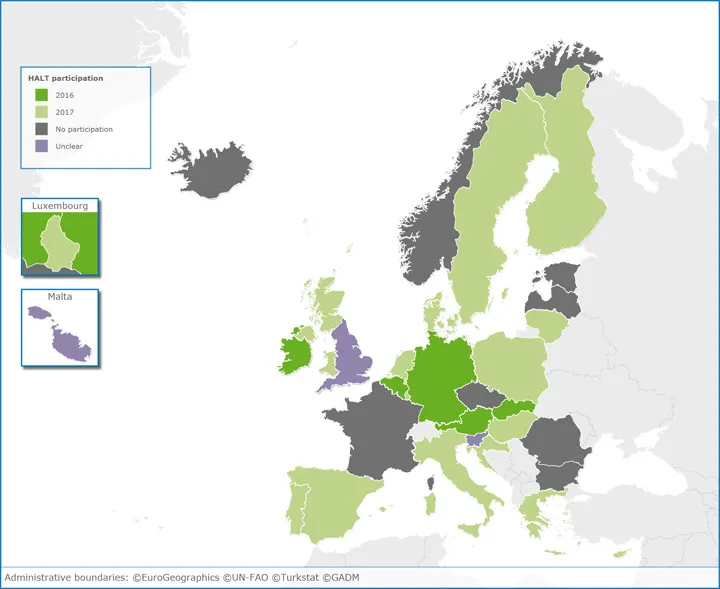Point prevalence surveys of healthcare-associated infections and antimicrobial use in hospitals and long-term care facilities across Europe are ongoing
Currently, ECDC is coordinating the second PPS in European acute care hospitals and the third PPS in European LTCFs (the latter is outsourced by ECDC to a consortium led by the Scientific Institute of Public Health, Brussels, Belgium). Both PPSs are organised in four waves: April-June 2016, September-November 2016, April-June 2017 and September-November 2017. Countries can organise their national PPSs during any of these waves depending on national priorities. Enrolment of hospitals and LTCFs can also be spread over more than one wave in order to increase the number of participating hospitals and LTCFs.
The results of these PPSs will be published by ECDC in 2018 and 2019. ECDC highlights the importance for national authorities in EU/EEA Member States to encourage facilities to take part during the remaining surveillance waves. Healthcare-associated infections are a threat for patient safety, and the PPSs serve as a tool to increase awareness and prevention of healthcare-associated infections at the local, national and European levels.
The maps below show the current status in terms of countries that participated in the PPSs in 2016 and countries that committed to participate in 2017

Country participation in the second ECDC point prevalence survey of healthcare-associated infections and antimicrobial use in European acute care hospitals, 2016-2017. Norway: partial participation with structure and process indicators and national PPS protocol.

Country participation in the third ECDC point prevalence survey of healthcare-associated infections and antimicrobial use in European long-term care facilities, 2016-2017.
Share this page


